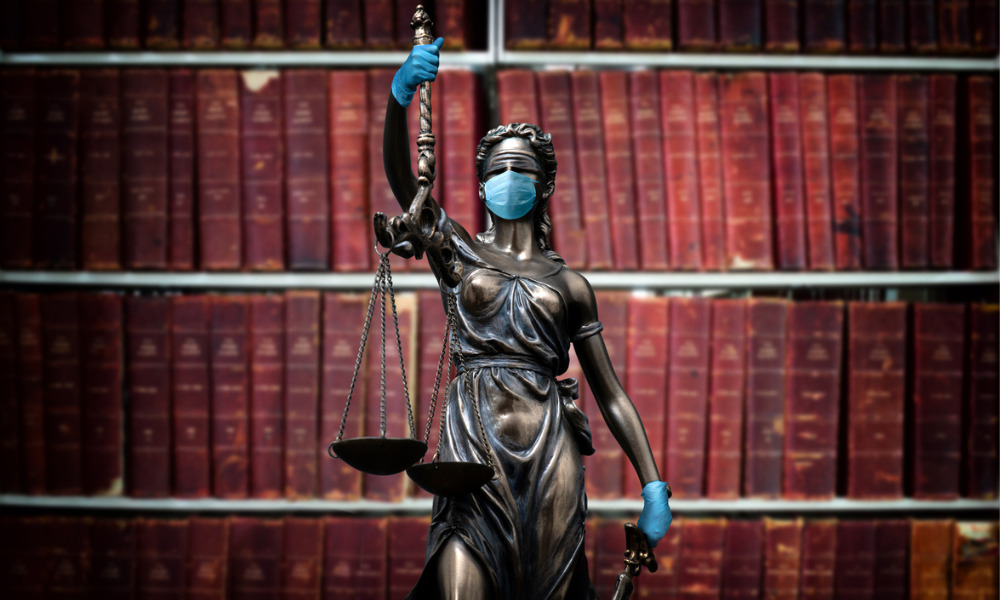
Criminal lawyers say the path forward should be up to the individual client and lawyer

While the “very survival of an independent defence bar is at stake” amid lingering court shutdowns, the Criminal Lawyers’ Association says it does not favour forcing parties into remote trials or in-person trials.
“No one (neither lawyer nor defendant) should be ‘forced’ to proceed with either a remote or socially-distanced in-person trial without their voluntary consent,” said John Struthers, president of the Criminal Lawyers’ Association, in a May 7 statement.
“We agree that there are limitations to remote proceedings and the decision to proceed in this fashion, even if available, should be up to the individual client and lawyer. Similarly, even if the Courts are deemed sufficiently safe to permit some socially distanced in-person proceedings, there may be members who have personal views or medical reasons that would lead them to choose to wait before attending in person at some later time in the future.”
While the CLA’s position was not to force remote proceedings, the group also said it was important not to re-open in-person trials too early.
“Our position is and has been that in-person proceedings, at least in a limited way, should be conducted only as soon as public health officials confirm that these can be set up with appropriate social distancing and sanitation measures in place,” wrote Struthers, who was an early and vocal advocate of suspending jury trials during the pandemic.
“Until then, many proceedings can be conducted by video-conferencing, provided that the technology chosen meets certain minimum requirements. While, in our view, some evidence is ill-suited for remote trials, there are many proceedings that can be conducted in whole or in part on ZOOM.”
Despite urging caution around opening the courts, Struthers acknowledged that the COVID outbreak has been “devastating” to criminal lawyers’ livelihood. He wrote that the CLA is “acutely” aware of the impact of “any unnecessary delay in getting back to work.”
“We want to get our members back to work both safely and as soon as possible,” he wrote. “We are committed to taking every step we can to keep the defence bar alive and well. We are advocating for financial relief and consideration with both governments, the Law Society and LAO. . . . .We are also aware that all the great technological advances soon to be rolled out are meaningless if there are no defence lawyers still in private practice to be able to use them. Together we saved thousands of families from the devastating injustice of been trapped in a cage during a pandemic; now we will work together again with our justice system partners with the same resolve to save the independent Criminal Defence Bar.”
With some courts still closed, the safest and fairest format of various proceedings — in-person, audio-video and written — has been hotly debated across many practice areas, as the legal profession confronts a mounting backlog of adjourned matters.
In court decisions such as Arconti v. Smith, 2020 ONSC 2782 and Association of Professional Engineers v. Rew, 2020 ONSC 2589, judges came out strongly in favour of video-conferencing as a way to avoid delays in appropriate cases. Other decisions, such as Carleton Condominium Corporation No. 476 v. Wong, 2020 ONCA 244, have ordered proceedings to go forward in writing.
In the Rew case, which was not a criminal case, the court determined “‘consent of the parties is not required” to schedule a proceeding by videoconference.
“The court is faced with an unprecedented challenge maintaining the institutions essential for the continuation of the Rule of Law in the face of the COVID-19 crisis, and recourse to electronic hearings is a key aspect of the court’s response. Scheduling and conduct of court proceedings is not subject to the consent of the parties,” wrote Justice David Corbett.